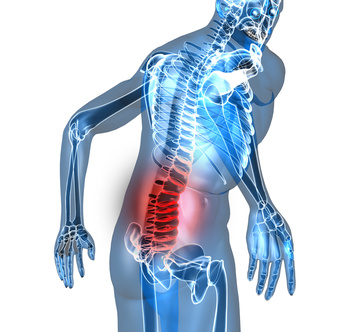
by Dr. Jason Lipetz
Most of us have been told more than once to “stand up straight” or to “stop slouching.” Though we may have felt that these corrections were just a form of nagging, good posture not only makes us more attractive but contributes to improved health in a variety of ways.
While some individuals cannot control their posture due to congenital abnormality or deformity that has resulted from an injury or illness, most of us have control over how we hold ourselves. Let’s not waste that ability.
Posture can affect not only our physical well-being but our emotional comfort as well. If you are suffering from back or neck pain, headaches, digestive or respiratory problems, depression, difficulty sleeping, or other chronic medical issues, poor posture may be causing or adding to your woes.
Improving your posture will make you look alert and feel confident, and may even, according to some studies, increase your lifespan.
What Kind of Doctors Are Most Interested in Posture?
Although all doctors and therapists have some training in the role posture plays in health, not all give the matter sufficient attention. In recent years, however, the medical profession as a whole is taking increased notice of physical therapy as a means to educate patients about how best to move their bodies in ways that cause less wear and tear, prevent injury, and result in improved posture.
Doctors are also becoming increasingly aware of the benefits of movement therapies, like yoga and Tai Chi, that promote postural awareness and balance. This is particularly true of physiatrists who are doctors who have additional training in nonsurgical treatments for spinal and musculoskeletal pain and dysfunction.
Physiatrists use some complementary treatments, such as acupuncture and pulsed electromagnetic field (PEMF) therapy in their offices, and recommend other alternative treatments to their patients to be used in conjunction with more standard medical remedies.
How Improving Your Posture Can Improve Your Health
Becoming more familiar with the way your body works will not only help you to use good posture to relieve aches and pains but also avoid injury. Symptoms good posture can prevent and relieve include:
Headaches
Headaches that originate in the neck may be caused or worsened by poor posture. Remaining in a position in which your head is in front of your shoulders puts added pressure on the joints and muscles of the upper neck, resulting in a headache.
If you work at a computer, one way to improve your neck posture is to ensure your computer screen is at the correct height whether you work in a seated or standing position.

Breathing Problems
Because slouching compresses the chest, it prevents the diaphragm from opening fully. Assuming better posture puts your diaphragm in a better position to take complete breaths.
Taking this step to improve your posture and breathing has the added advantage of increasing the volume and resonance of your voice.
Pelvic Pain
Poor posture can impact the lower back and pelvic region, too. One result can be pelvic floor dysfunction that can cause urinary retention, constipation, pain during intercourse for women, and erectile dysfunction for men.
Joint Pain
Sitting with your back unsupported, standing for long periods, crossing your legs or slouching can all lead to muscle imbalance that will irritate and inflame your joints.
If this poor posture is routine, the inflammation in your hips, knees, and ankles can lead to joint pain and joint instability and may make you more susceptible to injury.
Digestive Problems
If you eat a heavy meal and then slouch on the sofa, you may be punished with heartburn, acid reflux, heartburn, gas, or stomachache. The reason for this is that poor posture compresses your gastrointestinal organs and interferes with proper digestion.
Taking a walk instead of reclining after eating will prevent discomfort and improve your health.
Thoracic Outlet Syndrome
Though thoracic outlet syndrome usually occurs after an accident or as a result of a repetitive injury, it can also happen if you regularly slouch with your head forward since this position constricts your nerves and impedes blood flow in your upper body.
Symptoms of this syndrome are numbness or tingling in your neck, shoulder, arm, or hand. Left untreated, thoracic outlet syndrome may lead to serious swelling or even a blood clot.
Arthritis
It has been proven that poor posture can contribute to inflammation and arthritis. Sadly, once your cartilage wears away as arthritis worsens, you may be unable to assume proper posture because of joint deterioration.
Lack of Energy and Difficulty Sleeping
Poor posture makes your movement less efficient and more tension-producing so you end up feeling perpetually fatigued. Because poor posture also causes a misalignment of the spine and chronic pain, sleeping comfortably may be impossible.
Depression and/or Lack of Self-Esteem
Poor posture is often rooted in a lack of self-confidence in which slouching is a way of showing that you feel worthless, unable to cope, unattractive, and depressed.
People tend to withdraw from those who project this image, so bad posture can be a self-fulfilling prophecy. Improving your posture can actually make you happier.
The Takeaway
If you think that bad posture may be causing or contributing to your chronic pain, poor digestion, lack of energy, or other health problems, consider making an appointment with a well-respected physiatrist in your location.
Guided physical therapy and traditional and complementary treatments to relieve your pain and restore your mobility will help you stand (or sit) tall and put you back on the road to health.
 (Dr. Jason Lipetz, MD, is Clinical Assistant Professor at Hofstra University School of Medicine and founder of Long Island Spine Rehabilitation Medicine. Dr. Lipetz received his specialized and interventional spine medicine training during a fellowship year at the internationally recognized Penn Spine Center of the Hospital of the University of Pennsylvania.
(Dr. Jason Lipetz, MD, is Clinical Assistant Professor at Hofstra University School of Medicine and founder of Long Island Spine Rehabilitation Medicine. Dr. Lipetz received his specialized and interventional spine medicine training during a fellowship year at the internationally recognized Penn Spine Center of the Hospital of the University of Pennsylvania.
Dr. Lipetz has authored over thirty original articles and abstracts in peer reviewed journals and several textbook chapters, including chapters within the leading texts in both the Interventional Spine Care and Physical Medicine and Rehabilitation literature.)




